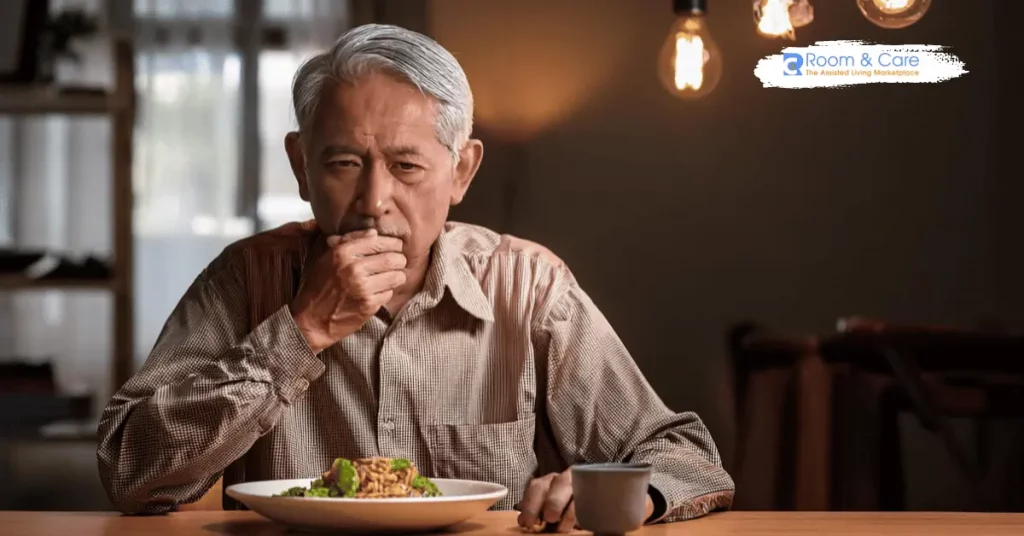

Loss of appetite in the elderly is a significant concern that affects many older adults and their caregivers. As people age, changes in their bodies, health conditions, medications, and even emotional factors can reduce their desire to eat. This can lead to malnutrition, a weakened immune system, muscle loss, and other health complications. For those in senior living communities such as assisted living facilities, nursing homes, and adult family homes, understanding the causes and solutions for loss of appetite is crucial for maintaining overall health and quality of life.
In this article, we will explore the common causes of appetite loss in seniors, how it affects their health, practical steps to improve their appetite, and what caregivers and senior living communities can do to help. We will also provide answers to frequently asked questions and guide readers on choosing the best care options for their loved ones.
Several factors can contribute to appetite loss in older adults. Understanding these causes is the first step in finding the right solutions. Let’s explore some of the most common reasons:
As people age, they are more likely to experience chronic medical conditions such as diabetes, heart disease, cancer, arthritis, and gastrointestinal disorders. These conditions can directly affect their appetite, either by altering how their body processes food or causing symptoms like nausea, pain, and fatigue. Medications commonly prescribed for these conditions may also cause side effects such as dry mouth, changes in taste, or gastrointestinal discomfort, all of which can reduce the desire to eat.
Emotional and mental health is closely linked to appetite. Depression, anxiety, grief, and loneliness are common among seniors, particularly those who have lost a spouse or live far from family. These feelings can lead to a reduced interest in eating and irregular meal patterns. Cognitive impairments, such as dementia or Alzheimer’s disease, can also affect appetite by altering taste perceptions, causing difficulty swallowing, or creating confusion about eating times.
The environment in which seniors eat can significantly impact their desire to eat. Unappealing food presentation, lack of variety, and an uncomfortable dining atmosphere can reduce appetite. Additionally, seniors may require assistance with eating due to physical limitations, and not having adequate support can make meals feel like a chore.
As people age, their senses of taste and smell often diminish, making food less appealing. Digestive changes, such as slower gastric emptying, can also cause a feeling of fullness sooner. Additionally, dental problems like missing teeth, ill-fitting dentures, or gum disease can make chewing difficult and painful, discouraging eating.
Physical activity is known to stimulate appetite. However, many seniors may have limited mobility or health conditions that restrict their ability to exercise. This lack of physical activity can further reduce hunger signals.

Loss of appetite in the elderly is not just about eating less; it has serious consequences for overall health and well-being. Here are some of the most common effects:
When seniors do not consume enough calories or nutrients, they are at risk of malnutrition. This can lead to deficiencies in essential vitamins and minerals, weakening the immune system and increasing susceptibility to infections. Malnutrition can also result in slower wound healing, muscle wasting, and decreased bone density, leading to a higher risk of falls and fractures.
Adequate nutrition is essential for maintaining cognitive function. A lack of proper nutrients, particularly B vitamins, omega-3 fatty acids, and antioxidants, can contribute to cognitive decline and increase the risk of developing dementia or worsening existing conditions.
Appetite loss can negatively affect a senior’s quality of life. It may lead to social withdrawal, increased fatigue, depression, and reduced physical function. Over time, these effects can result in a decreased ability to perform daily activities and a greater reliance on caregivers or assisted living support.
Addressing appetite loss in seniors requires a multifaceted approach. Here are some practical tips to help improve appetite:
Instead of three large meals a day, offer five or six smaller, nutrient-dense meals. This approach can be less overwhelming and easier to digest, making it more likely that the senior will consume adequate nutrition throughout the day.
Food presentation matters. Brightly colored foods, varied textures, and attractive plating can make meals more enticing. Consider using colorful vegetables, garnishes, and interesting shapes to make the plate visually stimulating.
Encourage the consumption of nutrient-dense foods that are easy to eat, such as smoothies, soups, and purees. Incorporate healthy fats (like avocados and olive oil), lean proteins (like chicken, fish, and legumes), and whole grains to provide essential nutrients.
Dehydration can reduce appetite and lead to other health issues. Encourage seniors to drink water, herbal teas, or consume hydrating foods like watermelon and cucumber. However, limit fluids right before meals to avoid creating a sense of fullness.
Many seniors need to limit their salt intake due to health conditions. Instead, use herbs, spices, citrus, vinegar, and other flavorings to enhance the taste of food without adding sodium.
Establishing regular mealtimes helps create a sense of routine and predictability, which can help stimulate appetite. Encourage seniors to eat at the same time each day, even if they only have small amounts.
Eating with others can make meals more enjoyable and encourage eating. Family members, friends, or caregivers can join seniors for meals, or senior living communities can organize group dining events.
Senior living communities, including assisted living facilities, nursing homes, and adult family homes, play a critical role in managing appetite loss among their residents. Here are some ways they can help:
By providing individualized meal plans that consider residents’ dietary needs, preferences, and health conditions, senior living communities can encourage better eating habits. Personalized nutrition plans ensure that each resident receives the necessary nutrients while catering to their tastes and comfort.
Having trained staff who understand the importance of nutrition and how to support seniors with eating difficulties is crucial. Staff can assist with feeding, monitor intake, and make necessary adjustments to meal plans. They can also create a pleasant dining environment and offer encouragement to eat.
Regular assessment of residents’ nutritional status and appetite allows for timely interventions. By monitoring weight, food intake, and overall health, caregivers can detect appetite changes early and take steps to address them.
Involving family members in care decisions and encouraging them to visit during mealtimes can significantly improve seniors’ appetite. Family visits can provide emotional comfort and encourage eating, making mealtime a more enjoyable experience.
What are some signs that a senior is not eating enough?
Signs include noticeable weight loss, low energy, muscle weakness, dizziness, and behavioral changes such as irritability or confusion.
How can I help my elderly loved one eat more?
Offer small, frequent meals, focus on nutrient-rich foods, make meals visually appealing, create a pleasant dining atmosphere, encourage social interactions, and provide assistance as needed.
Is appetite loss always a cause for concern in the elderly?
Not always. Mild appetite changes can be a normal part of aging. However, if appetite loss is persistent, leads to weight loss, or causes health issues, it’s important to consult a healthcare professional.
How do senior living communities help manage appetite loss?
Senior living communities provide personalized meal plans, create pleasant dining environments, offer physical and social activities, and have trained staff to support residents with their nutritional needs.
Can nutritional supplements help?
Yes, when food intake is insufficient, nutritional supplements like shakes or fortified snacks can provide essential vitamins, minerals, and calories.
Selecting the right senior living community is essential when addressing appetite loss in the elderly. Look for communities that prioritize nutrition, offer personalized meal plans, and provide social engagement opportunities. They should also have trained staff who can monitor residents’ health and offer assistance during meals.
At Room and Care, we help you find the best options for your loved ones, whether you need an assisted living facility, nursing home, adult family home, memory care facility, or independent living community. We offer these services without any referral fees or middlemen, ensuring you have direct access to quality care while saving on costs.
Loss of appetite in the elderly is a complex issue with multiple causes and serious health implications. By understanding these causes, recognizing the signs, and implementing practical solutions, caregivers, family members, and senior living communities can help improve the nutritional status and overall well-being of older adults. Ensuring that seniors receive proper care and support can significantly enhance their quality of life.